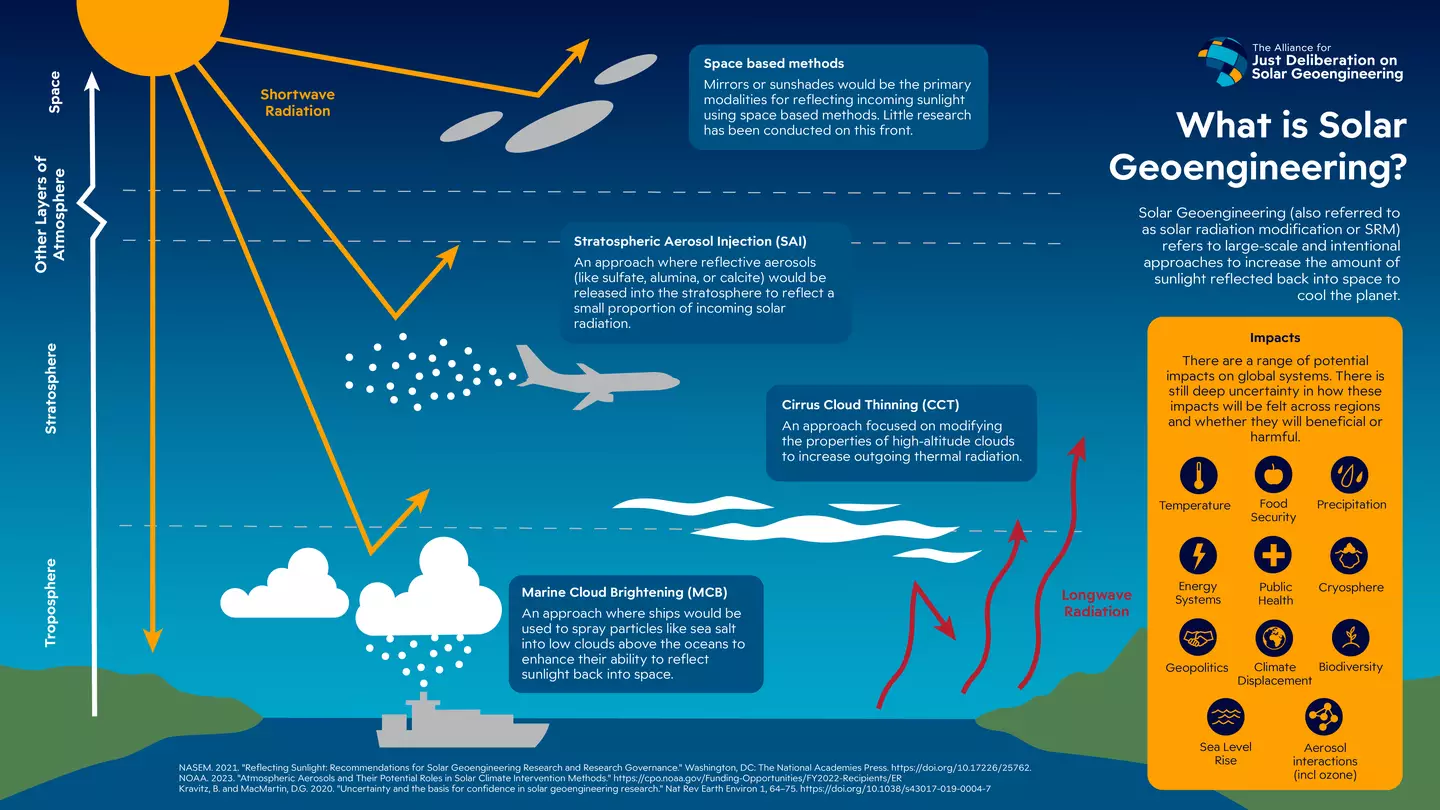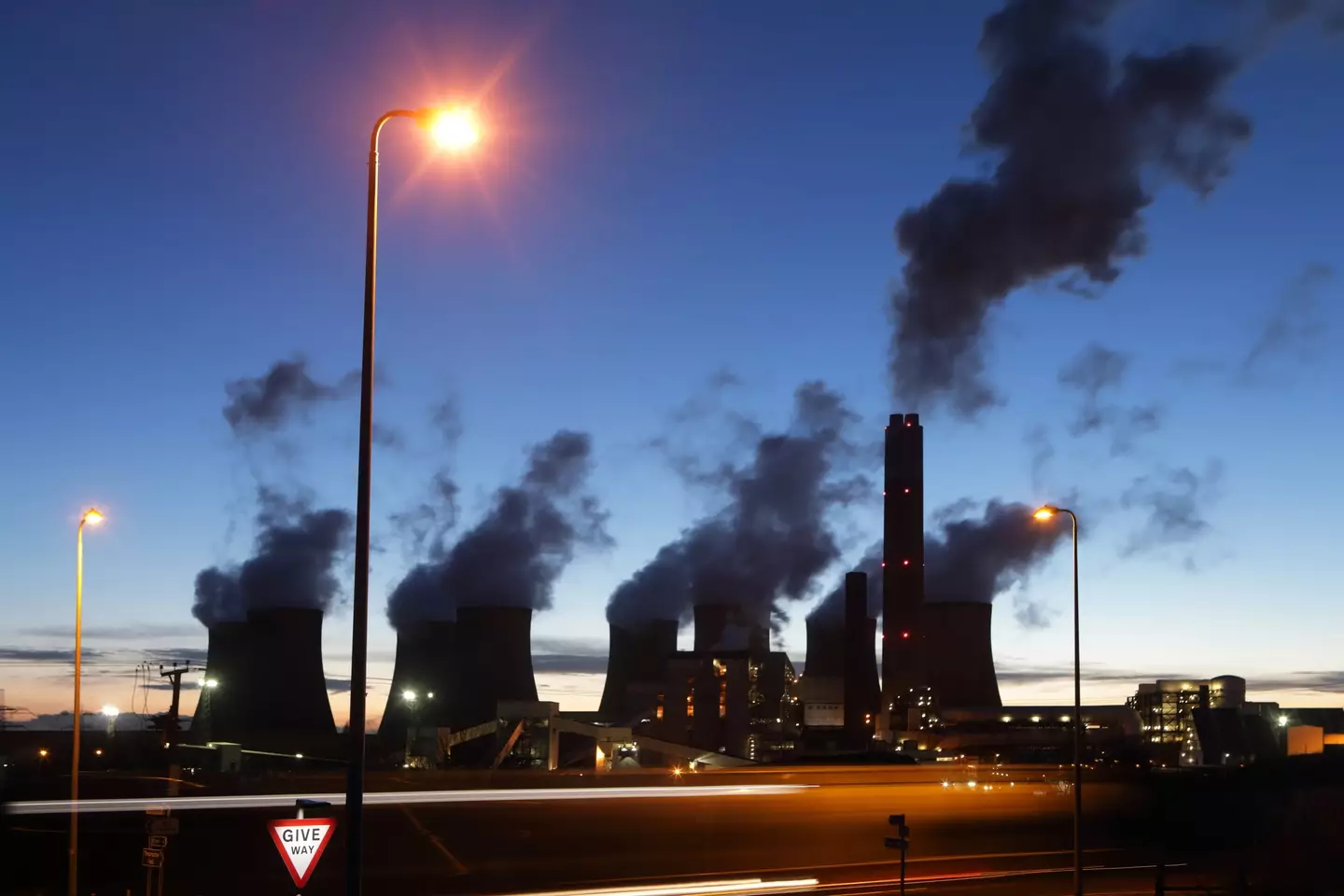
Controversial experiments intended to block out or dim the Sun known as 'geoengineering' are expected to be approved within weeks by a UK government agency, and it could be the key to slowing down global warming.
Climate change is one of the biggest problems facing our planet as a collective right now, and scientists have repeatedly warned that 'irreversible' damage is occurring with seemingly no plans to properly combat it.
Terrifying projections of what Earth could look like in the future if global warming continues as it is right now are likely to shake you to your core, and with yearly carbon limits breached by the richest 1% in just a few days, it can leave you wondering what options are left.
One potential solution though is geoengineering, as while highly debated and controversial, it could successfully slow down the effects of global warming, giving much-needed time to tackle other key measures.
Advert
As reported by The Guardian, geoengineering is a process that aims to artificially block out and dim sunlight from reaching Earth's surface, which would in turn curb rising temperatures.

It does this by releasing aerosol particles into the air above the clouds which reflect light from the Sun back into space, and it also uses separate particles to make clouds brighter, increasing their reflectivity in addition.
Plans to begin experimenting with these solar radiation management (SRM) techniques is expected to be approved by the UK's Advanced Research and Invention Agency (Aria) in a £50 million ($66.5 million) program, which will then assess the viability of the process through the collection of critical data.
Scientists backing the plan emphasize its urgency by highlighting the climate 'tipping points' - such as the collapse of ocean currents and giant ice sheets - that it could delay by lowering global temperatures.
However, SRM approaches have their fair share of opposition who typically highlight two key areas to prove that geoengineering plans aren't as efficient or viable as you might think.
First and foremost, there is a worry that geoengineering could have dangerously unintended consequences on the environment, as tampering with the atmosphere, clouds, and sunlight could alter rainfall which is vital to food production.
Additionally, many scientists have argued that SRM only obscures the true culprit of climate change worldwide, which is the burning of fossil fuels. Private jets from one of the world's richest individuals pump out 207 years worth of pollution in just 12 months, for example, so acting like SRM will solve the issue while these harmful actions continue is disingenuous.

Some have even compared geoengineering efforts to using aspirin to cure cancer, although that has actually been suggested by one study in what's considered to be a 'eureka moment'.
Dr. Pete Irvine at the University of Chicago has outlined that "it's worth stressing that geoengineering is not a substitute for emission cuts," but it still could prove to be a worthwhile effort to slow down the effects, so long as the main causes are also addressed.
With rising power demands for artificial intelligence production though, including allegedly illegal measures in some cases, it's hard to see a situation in the next few years where demand for global power decreases, even with the efforts of countries like China to achieve carbon neutrality.
